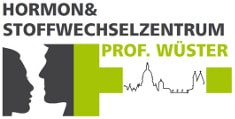Hashimoto Center for patients from Wiesbaden and Frankfurt
Mainz Hormone and Metabolism Center – an important address far beyond the Mainz/Wiesbaden region
WIESBADEN/FRANKFURT AM MAIN. Thyroid diseases are often treated incorrectly. The diagnosis of a thyroid disease such as Hashimoto’s thyroiditis is the task of highly specialised specialists. Endocrinologists are few and far between in Germany. The training of an endocrinologist: A 6-year medical degree is followed by a total of 6 years of specialist training as an internist. Several years of further training in endocrinology then culminate in an examination. Once this has been passed, a specialist can call themselves an ‘endocrinologist’. Endocrinologists have completed one of the longest training programmes in medicine. It is therefore no wonder that the catchment area of the Hormone and Metabolism Centre in Mainz extends far beyond the Rhine-Main region with the cities of Wiesbaden and Frankfurt. (The facility is also a ‘Hashimoto Centre’).
Endocrinologists have completed one of the longest training programmes in medicine
One example: the thyroid gland is a tiny, butterfly-shaped organ that does a great deal in our bodies. The thyroid gland produces the hormones T3 and T4, which have a significant influence on our growth, psyche, metabolism in general and bone metabolism in particular, as well as our cardiovascular system. Almost all bodily functions are directly or indirectly influenced by the thyroid gland, which is located in the front of the neck at the level of the larynx. It is estimated that one in three Germans suffers from a more or less pronounced thyroid dysfunction. This is often a case of hypothyroidism.
Almost all bodily functions are influenced by the thyroid gland
The cause of hypothyroidism can be chronic inflammation – Hashimoto’s thyroiditis. This is an autoimmune disease – the body’s defence system attacks the thyroid gland.
Hashimoto’s patients are predominantly between 30 and 50 years old, with women suffering more frequently from the autoimmune disease. There are different forms of Hashimoto’s. In addition, other autoimmune diseases are often diagnosed at the same time as Hashimoto’s thyroiditis, which is initially inconspicuous and painless. As the disease progresses, the thyroid gland is less and less able to supply the body with its hormones. Typical symptoms of hypothyroidism include
- Tiredness, fatigue,
- lack of motivation,
- digestive problems,
- low pulse rate,
- dry skin,
- weight gain,
- hair loss,
- Cycle disorders in women,
- freezing.
The examination at the Hormone and Metabolism Centre in Mainz: After a detailed medical history and palpation of the thyroid gland, extensive blood tests and ultrasound examinations are carried out to examine the structure and size of the thyroid gland. Only in rare cases is a microscopic examination of the thyroid tissue necessary.
Image used by the Hashimoto Centre Mainz: © Kateryna_Kon/Fotolia

